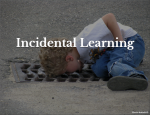 I recently posted an article titled 10 Great Reasons to Homeschool. In one of the comments Jared Davis did a stellar job sharing so many homeschool stereotypes in a single comment. As a homeschooler I have heard many of these stereotypes over and over again, but I hadn’t seen them stated so succinctly before. Here is his comment:
I recently posted an article titled 10 Great Reasons to Homeschool. In one of the comments Jared Davis did a stellar job sharing so many homeschool stereotypes in a single comment. As a homeschooler I have heard many of these stereotypes over and over again, but I hadn’t seen them stated so succinctly before. Here is his comment:
Translations:
#1 your kid cant focus to take a test or doesn’t have the requisite DNA to produce
#2 You can bombard them with useless right wing religious garbage.
#3 justification for why Junior can’t sit still and focus
#4 the little freak can’t assimilate with his peers and spends wayyy too much time burning ants with magnifying glasses
#5 sloooowwwww
#6 picture books…crayons (age 9)….dull scissors…color by number projects
#7 who needs math…focus on creationism
#8 your kid will be totally dependent on you with an inability to develop external relationships
#9 because the best friendships are forced by dna
#10 deadlines are not important or needed in life
I wanted to go over his different points. I listed each of the 10 reasons along with his comment before I replied to his statement. How would you reply to Jared?
1. Escaping the standardized testing culture
Today’s schools seem to have fallen into a ditch of testing, testing, testing. Home education allows you to focus on educating and not on passing a test.
In response to this he said:
#1 your kid cant focus to take a test or doesn’t have the requisite DNA to produce
Research shows that homeschooled children typically outperform their public school peers on standardized tests. The public school average is the 50th percentile, but Nheri reports that the homeschool average tends to be 15-30 percentile points higher.
I give my children standardized tests. They like taking them. Maybe this is because they have never been part of the testing culture found in today’s schools. They have no difficulty producing or any difficulty focusing on the standardized tests. We focus on education and not on how to pass a test. I used to work in Texas schools and I saw the standardized testing culture first hand. I saw the pressure the teachers were under to produce and the time that was spent learning the items that were going to be on the test. I read the testing goals that were written on the board – the goals that all the kids knew. I wasn’t yet a parent, but I knew that that wasn’t what I wanted my children’s education to be about.
We don’t do anything to prepare for standardized tests other than going over how to fill in a bubble for a few minutes before they take the tests. Unless of course, you consider the time we spend educating. This education is not geared toward passing a test, but geared toward learning and growing in knowledge.
2. Passing on your values
Home education allows you to share your values with your children in your day to day life. If a religious, moral, or political viewpoint is important to your family, you can teach it directly or have informal discussions during the day as issues arise.
In response to this one he said:
#2 You can bombard them with useless right wing religious garbage.
Homeschooling was once a stronghold of conservative Christians, but now it is pretty mainstream. You will find all faiths, atheists, liberals, and conservatives in a homeschooling community. Nheri reports that homeschooling is found among a variety of races, religions, and political perspectives.
I find Jared’s statement rather interesting here because I wrote #2 with the different perspectives of homeschoolers in mind. I live in an area with a wide range of homeschoolers – races, religions, and political perspectives.
3. Freedom
Homeschooling gives your family freedom. You don’t have to be bound to a particular schedule or even have to stay in one place. You can travel the world or stay home. You can sleep late, rise early, or do a bit of both. Home education allows you to organize a life that works for you and your family.
To this he said:
#3 justification for why Junior can’t sit still and focus
CNN reported that teenagers do better with starting school later in the day. The sleep deprivation of today’s teens leads to lack of focus according to Dr. Fred Danner. Teens need 10 hours of sleep and today’s teens are rarely getting that amount of sleep. They head to class tired and unable to focus.
For a child who has difficulty sitting still and focusing on classwork, homeschooling is a beautiful thing. Homeschooling allows the parent to teach the child in the way that the child learns rather than forcing a square peg into a round hole. Classroom settings rarely have the necessary resources to adapt to meet the various needs of students.
4. Your child can be himself/herself
The bullying culture of the schoolroom promotes uniformity and looks down on anyone who is different. Homeschooling allows your child to be himself or herself without peer-shame. Your homeschooled child can choose peers that share similar interests rather than having peers based on age groupings in the classroom.
To that he said:
#4 the little freak can’t assimilate with his peers and spends wayyy too much time burning ants with magnifying glasses
Yes, this is exactly why homeschooling is amazing! The bullying culture doesn’t just bring about bullying, but it promotes the idea that different=bad. Jared Davis demonstrates this point quite well with his statement. Homeschooling provides an environment that allows a child to understand and appreciate differences in others.
Nheri reports that the “home-educated are doing well, typically above average, on measures of social, emotional, and psychological development. Research measures include peer interaction, self-concept, leadership skills, family cohesion, participation in community service, and self-esteem.”
There are children who have peer difficulties, but those children are found in all types of school situations – public, private, and homeschool. In homeschooling peers are not restricted to similar-aged children from one neighborhood. Peers are more similar to the peers of adulthood – peers of varying ages who share similar interests.
5. Go at child’s pace
There is no need to keep up with the class or wait for the class to catch up. Homeschooling allows you to go as fast or as slow as your child needs.
To that he said:
#5 sloooowwwww
A growing number of gifted children are leaving public and private schools to homeschool. In classrooms of 25-30+ kids, teachers are unable to provide the differentiation to meet the needs of many gifted learners.
Children with special needs often make more progress with homeschool because they are getting one-on-one attention and individualized instruction for all of their classes. A classroom setting cannot provide that.
Nheri reports that individualizing and customizing a child’s education is one of the top reasons for homeschooling.
6. Freedom to use materials or methods that work best for your child
The standard school situation requires the teacher to use a certain book and teach in a classroom setting. Homeschooling allows the parent to use an education method that suits the child best. Whether that is unschooling, informal studies, learning through travel, classical, Charlotte Mason, Waldorf, Montessori, or a traditional method, homeschooling allows you to tailor the method to the child. Homeschooling also allows you to think outside the standard box of school-issued textbooks and use something that will connect with your child.
To that he said:
#6 picture books…crayons (age 9)….dull scissors…color by number projects
Nheri reports that homeschoolers tend to score above average on achievement tests. This is whether the parents are educated or not.
7. Teach subjects that a standard school setting doesn’t cover.
Many schools are focusing on the basics now. Homeschooling allows your child to delve deep into a subject that isn’t normally covered in a school setting.
To this he said:
#7 who needs math…focus on creationism
I remember sitting in a teacher’s lounge in a school in Oregon. I worked as a specialist with many children in that school and ate with the teachers at lunch. Some of the teachers had been teaching for quite some time and they recalled how education had changed. They remembered the days when they used to be able to cover more than the basics and wished that they could still educate like that. There is barely time to cover the basics now.
Some families teach creationism in their homeschool and others teach from an evolutionary mindset. Some have time spent learning about the Bible while others are atheists. Homeschooling can’t be pigeonholed into a creation/evolution debate.
The subjects available to study in a homeschool setting are endless. A child can learn computer programming in elementary school, foreign language in Kindergarten, dig deep into a history topic, study geography (I witnessed firsthand the lack of geography knowledge in today’s schools), learn about religions around the world, read philosophy, and study logic. Yes, logic. I see logic severely lacking in our society – especially when I see arguments based on stereotypes.
8. Relationship with your children
Homeschooling your children can help you know and appreciate them even more. It will help you learn more about how they think and what makes them tick. Not only that, but the day in and day out of homeschooling will help build strong bonds. You will have bad days and good days, but you will go through them together while getting to know and understand more of each other.
9. Sibling bonds
A standard school situation would have siblings apart from each other for the bulk of most days. Homeschooling will allow your children to develop strong bonds with each other as they play together and learn together.
For these he said:
#8 your kid will be totally dependent on you with an inability to develop external relationships
#9 because the best friendships are forced by dna
Having a strong relationship with your child doesn’t preclude your child from having external relationships and having your sibling as a friend doesn’t mean your child doesn’t have friends outside the family. Nheri reports that homeschoolers are active in their community. They are involved and have relationships with peers and adults who are not part of their family. My kids have relationships with people outside my family. Homeschooling doesn’t mean you are only schooling at home anyway. The world is the classroom when you homeschool. Right now my kids have a couple different teachers for activities outside the house, and yes those activities involve other children too.
10. Time
One of the best gifts you can give your child is your time. Homeschooling will allow you to be there for those precious moments like when you hear your child read for the first time or when your child finally gets a math concept you are explaining. Lengthy discussions with you during the day are also made possible because of homeschooling.
Not only does homeschooling give you time with your child, but it gives your child time to be a child. Childhood rushes past fast enough. Opting out of the school system will give your child time to fully explore topics of interest, time to play, and just time to not be busy all of the time.
To that he said:
#10 deadlines are not important or needed in life
Deadlines are part of everyday life. How many deadlines does a child need in order to be ready for deadlines of adulthood? When we attend outside classes or doctor’s appointments, we have to leave on time to get there in time. My kids have to finish their chores on time if they want to be able to play video games. There are enough deadlines in day to day life without having to enter a classroom setting to get used to deadlines.
I shared Jared’s arguments on this post because I thought they did a great job demonstrating many of the stereotypes out there. It also reminded me of how important it is to study logic. Schools are focusing on the basics with little time for things like logic and our society is churning out individuals who cannot think rationally or pose rational arguments. I applaud Jared for looking at this critically, but critical arguments must also be rational to be effective.







You are my homeschool hero 🙂 I love this in every possible way.
If ‘Jared’ is a product of mainstream schooling then I am really glad my child is not in mainstream school.
Well done with responding. You were tactful all the while proving your point. Handing his butt back on a platter without loosing your cool. At some point I started feeling sorry for the guy because he was so clueless and rude.
Thank you! This was perfect!
Well, I finally did post my thoughts about stereotypes on my blog. I really hope the increasing prevalence of homeschooling will dispel some of these stereotypes soon!
I’m a homeschooling mom of two, and I appreciate your thoughtful response to these stereotypes. However it’s a pity you cited NHERI so often as your source, since Brian Ray’s research methodology is flawed and therefore his findings questionable. (His own studies and articles make up more than half the source material for the website you linked to.) That isn’t to say that your statements are untrue (I happen to agree with most of what you said), but Ray, and by extension NHERI, is not a reliable source for homeschooling data and outcomes. You can read more about his methodology at http://www.responsiblehomeschooling.org/choosing-the-data-that-supports-your-agenda-a-look-at-ray-2010/
Hi, Karen!
Aren’t we all falling for evidence ‘cherry picking’ to support our arguments, at times? Sometimes there is no real ‘evidence’ to do that and we go with our instinct. However, the societal pressures of everything having to be ‘evidence-based’ to be ‘reliable’ forces us to cherry pick. We’re only human…
Speaking of ‘reliable source for homeschooling data and outcomes’, please share with us some, if you came across any! Thank you.
Catalina
What a great example of how to respond with incredible articulation, well researched arguments and thought out rhetoric that may leave poor Jar rocking in the fetal position, great work!!!
It always astounds me how people are so quick to judge and leap to conclusions, and not even logical conclusions! I would say each of his responses is an example of bad logic. I loved this post by another blogger about critical thinking (good logic vs. bad logic, in kid-friendly terms) http://christianmomthoughts.com/how-im-teaching-my-6-year-olds-to-be-critical-thinkers/ and the point is that there’s a lot of bad logic out there and one of the best parts of homeschooling (one of those extra topics that can be taught that isn’t often taught at school) is teaching critical thinking.
Basically he takes each of your statements to a conclusion that does not follow, logically speaking. For instance, “Going at your own pace” does not always mean going slower and in fact it often means going faster. Or “teaching your beliefs and values” doesn’t mean it has to be right-leaning or religious. Your responses clearly show how illogical his conclusions are, and his conclusions are completely based on stereotypes.
I was JUST thinking about stereotypes yesterday and was going to post about it on my blog, (I haven’t done it yet though) so this post really hits home for me. Stereotypes anger me, because no matter what I am, (homeschooler , Christian, Chinese, woman) I am an individual with my own thoughts and feelings and I don’t want to be judged based on misconceptions. Yes there will always be people who DO fit the stereotype, but that doesn’t mean all (or most) do and for someone to come on to your blog and make such claims is just ignorant on his part.